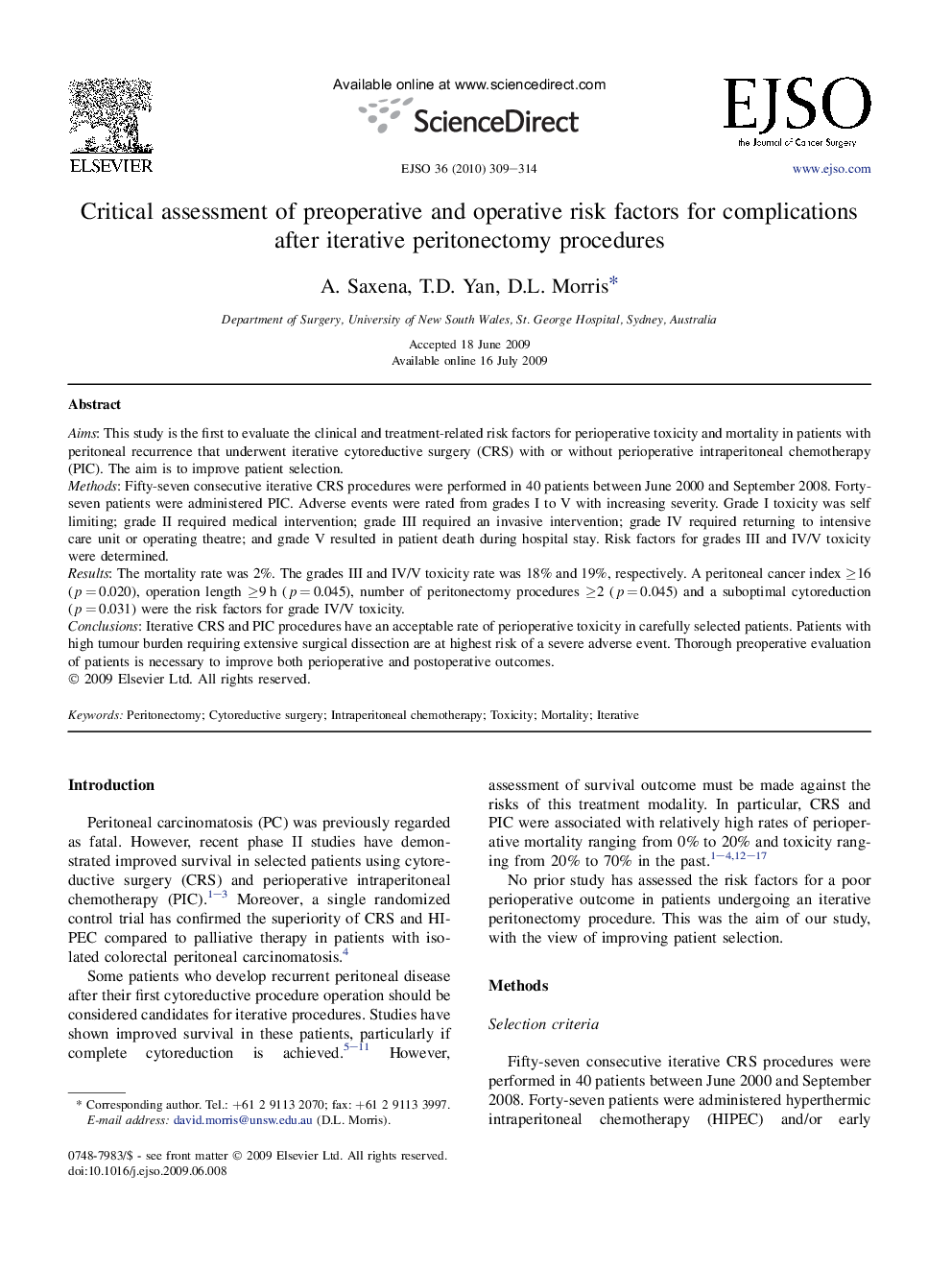| Article ID | Journal | Published Year | Pages | File Type |
|---|---|---|---|---|
| 3986544 | European Journal of Surgical Oncology (EJSO) | 2010 | 6 Pages |
AimsThis study is the first to evaluate the clinical and treatment-related risk factors for perioperative toxicity and mortality in patients with peritoneal recurrence that underwent iterative cytoreductive surgery (CRS) with or without perioperative intraperitoneal chemotherapy (PIC). The aim is to improve patient selection.MethodsFifty-seven consecutive iterative CRS procedures were performed in 40 patients between June 2000 and September 2008. Forty-seven patients were administered PIC. Adverse events were rated from grades I to V with increasing severity. Grade I toxicity was self limiting; grade II required medical intervention; grade III required an invasive intervention; grade IV required returning to intensive care unit or operating theatre; and grade V resulted in patient death during hospital stay. Risk factors for grades III and IV/V toxicity were determined.ResultsThe mortality rate was 2%. The grades III and IV/V toxicity rate was 18% and 19%, respectively. A peritoneal cancer index ≥16 (p = 0.020), operation length ≥9 h (p = 0.045), number of peritonectomy procedures ≥2 (p = 0.045) and a suboptimal cytoreduction (p = 0.031) were the risk factors for grade IV/V toxicity.ConclusionsIterative CRS and PIC procedures have an acceptable rate of perioperative toxicity in carefully selected patients. Patients with high tumour burden requiring extensive surgical dissection are at highest risk of a severe adverse event. Thorough preoperative evaluation of patients is necessary to improve both perioperative and postoperative outcomes.
